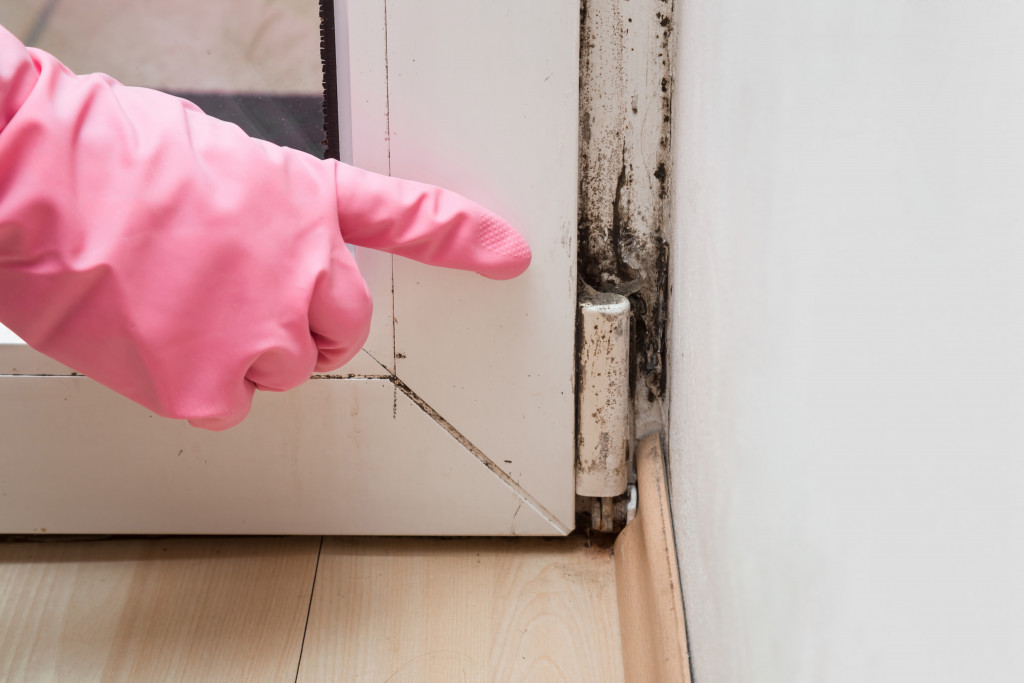- Seek medical attention immediately after a fire, even if you don’t think you have been affected.
- Reduce stress through relaxation techniques or counseling to protect mental and physical health.
- Wear protective clothing when cleaning up after the fire, and test any materials containing asbestos before attempting to clean up.
- Stay informed about the long-term health effects of the fire and become educated on fire safety practices.
- Practice prevention by familiarizing yourself with modern fire alarm systems for peace of mind.
After a fire, the effects on your physical and mental health can be profound. Smoke and soot can cause respiratory difficulties, while psychological trauma from the event can lead to depression or anxiety. It is essential to take steps to manage these issues in order to safeguard your health after a fire. Here are five tips to help identify and treat health issues that may arise after a fire.
1. Seek Medical Treatment
The most important thing you can do for yourself after a fire is to seek medical attention right away, even if you don’t think you have been injured or exposed to smoke inhalation. A doctor will be able to assess any damage and provide medication or other treatments if needed. If you have been exposed to smoke inhalation, it is crucial to seek medical help in order to prevent longer-term health issues such as chronic breathing problems.
Here are the most common indicators to watch out for that may be a sign of a more serious health issue after a fire:
Coughing
After a fire, a persistent cough that doesn’t go away can indicate damage to your lungs or airways. Coughing up black or gray phlegm can also be a sign of smoke inhalation and should be assessed by a doctor.
Wheezing

If you experience difficulty breathing or a whistling sound when you exhale, this could be a sign of respiratory distress, and you should seek medical attention right away. Wheezing after a fire can be caused by smoke inhalation, which can damage your lungs and airways.
Headaches
If you are experiencing frequent headaches after the fire, this can be an indicator of smoke inhalation and toxic fumes from the fire. This may also be a sign of post-traumatic stress disorder (PTSD). It is essential to seek help from your doctor if these symptoms persist.
Eye Irritation
Burning, watery eyes or blurred vision may indicate that your eyes have been exposed to dangerous toxins in the smoke and soot. While most of the smoke and soot can be removed from your home, it is still essential to get checked by a doctor if you experience ongoing eye irritation.
2. Reduce Stress
Stress can worsen a fire’s physical, mental and emotional health effects, so reducing stress levels is vital. Try relaxation techniques such as deep breathing or mindfulness meditation, or engage in activities that bring you joy, such as gardening or yoga. If needed, seek counseling or therapy from a professional to find healthy ways of dealing with the emotions associated with the fire.
3. Clean Up Safely

Cleaning up after a fire can be arduous, but it must be done safely to prevent further health issues. Wear protective clothing such as a respirator and gloves, and make sure the area is well-ventilated. If possible, have any materials containing asbestos tested by professionals before attempting to clean up. Finally, be aware of the risks of mold growth in wet areas from firefighting efforts and take steps to reduce moisture levels if needed.
4. Stay Informed
It is essential to stay informed about any long-term health effects that may arise after a fire. Monitor your physical and mental health for changes, and keep track of any symptoms you experience for future reference in case they become more severe over time. Additionally, seek out reliable sources for information about fires or their aftermath so you are aware of new treatments or therapies that may be available.
5. Practice Prevention
After a traumatizing incident such as a fire, engaging in activities promoting safety and prevention can benefit your mental and physical health. Become educated on fire safety practices to reduce the risk of future fires, or volunteer with an organization dedicated to fire prevention or disaster relief. Promoting the importance of implementing safety measures and choosing reliable commercial fire alarm systems in your apartment, office, and other places you frequent can also help you feel empowered. Familiarizing yourself with the effectiveness of modern fire alarms can give you peace of mind.
To Wrap Things Up
It is essential to take steps to manage any health issues that may arise after a fire. Seek medical attention immediately, reduce stress levels through relaxation techniques or counseling if needed, clean up safely using protective clothing and equipment, and stay informed about any long-term health effects. You can overcome any health issues associated with fire with proper treatment and monitoring. Remember that many fires are preventable, and practice fire safety in your home, workplace, or other places you frequent to reduce the risk of future fires. Following these tips can treat fire-related health issues and help ensure your overall health and well-being.